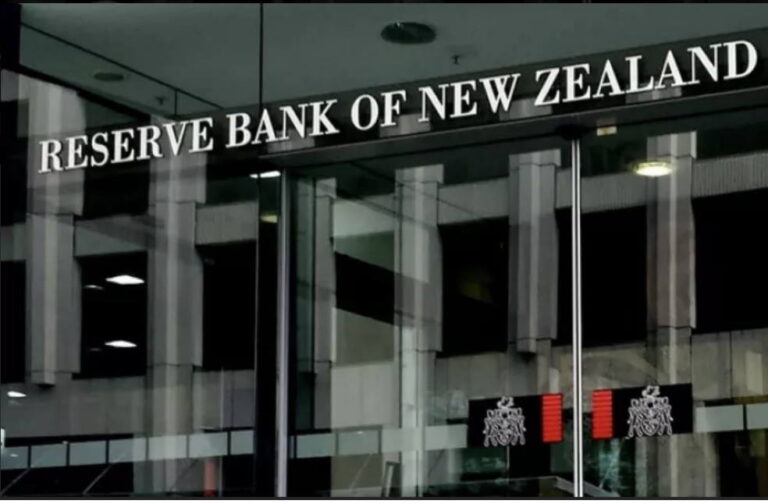New Zealand: The Central Bank of New Zealand has hiked interest rates to a record high and warned that a full year of recession might be necessary to get inflation under control.
The Reserve Bank of New Zealand (RBNZ) hiked the official cash rate (OCR) by 75 basis points to 4.25 percent and now expects rates to peak at 5.5 percent, compared with a previous forecast of 4.1 percent. Some traders were surprised by the Central Bank’s openly hawkish tone, which made the local currency and swap rates go up. Traders were also taken aback by RBNZ’s predictions of a recession.
The Apex bank expects the economy to begin contracting in the second quarter of 2023 and continue to decline through the first quarter of 2024.

At a news conference, RBNZ Governor Mr. Adrian Orr stated that, “Inflation is no one’s friend, and to rid the country of inflation, we need to reduce spending levels. Thus, we will see a period of negative GDP growth.”
The meeting minutes showed that the RBNZ even talked about a one-point increase. The markets reacted swiftly to a change in rate expectations.
With the RBNZ’s ninth consecutive increase, the cash rate has climbed 400 basis points since October 2021, marking the most severe policy tightening since the introduction of the cash rate in 1999. It is now at a level not seen since January 2009.
New Zealand-based ASB Bank wrote in a note that, “The RBNZ’s stance was very hawkish, including discussing the potential for a 100bp hike.”
Still, with three months until the next decision, the RBNZ would monitor data flow to see if its hawkish stance remained appropriate.
Inflation is slightly below three-decade highs, and non-tradeable inflation, or prices for items not exposed to global markets, is at a record level. There are also indications that wage pressures are intensifying, although inflation expectations show no sign of slowing down.
Australian multinational banking and financial services company, ANZ continues to be transparent about the fact that the RBNZ is conducting monetary policy in a cloud of uncertainty.

ANZ claimed that, “In such an environment, it makes sense to look at the costs of being wrong in either direction, and these simply aren’t comparable.”
ANZ continues stating that If data does worsen significantly before the next meeting, it can adjust with little harm, but if the opposite were to happen, the RBNZ would have regretted not going harder.
According to the Central Bank, house prices, which had been a substantial inflationary component during the tightening cycle, have decreased by almost 11 percent. The RBNZ expects a 20 percent price decline from the November 2021 peak.



